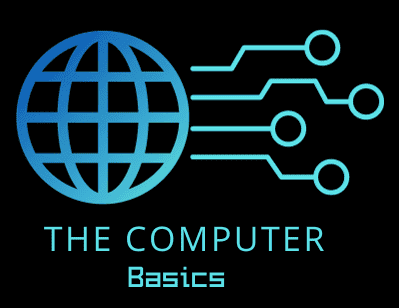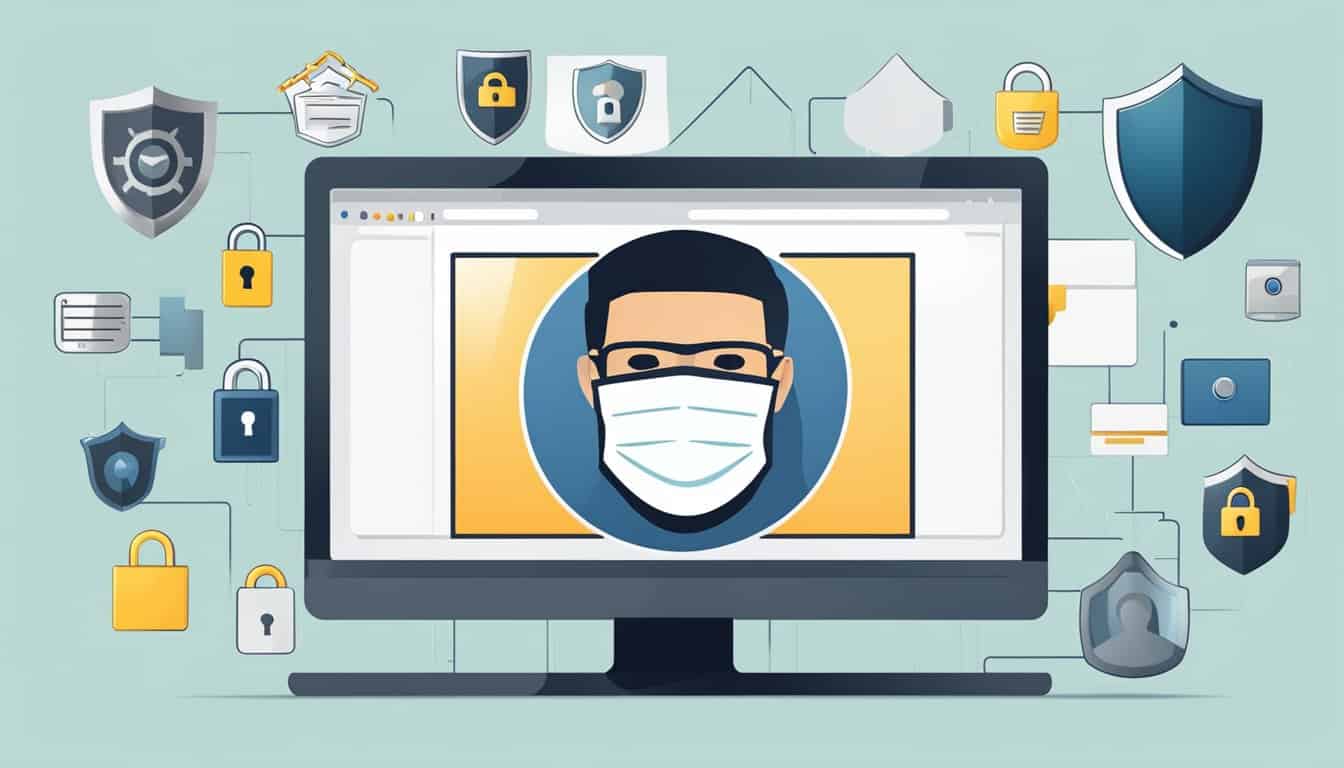Maintaining your privacy online is more complex than it may seem at first glance. In an era where personal information is a hot commodity, staying anonymous can be challenging but incredibly valuable.
That’s where a suite of privacy tools and practices come into play, designed to protect who you are and what you do online from prying eyes.
These tools work to secure your data, ensuring that browsing, communication, and online transactions maintain a level of confidentiality that you’re comfortable with.
Online anonymity isn’t just about keeping secrets; it’s also about asserting control over your personal and digital identity. It involves understanding and utilizing various security measures that can include anything from encryption to using virtual private networks (VPNs) and anonymous browsers.
Knowing these tools and how they work can empower you to make informed decisions about your internet usage and take steps to mitigate the risks of being exposed online.
Understanding Online Privacy and Anonymity
In the digital age, maintaining your privacy and anonymity online is as vital as locking your doors at night.
Let’s break down what this really means and how you can safeguard your information.
Defining Privacy and Anonymity on the Internet
Online privacy involves controlling the access to personal data you share on the internet. It’s about protecting details like your name, location, and browsing habits from being exploited.
Anonymity on the internet means your actions can’t be traced back to you, providing a cloak under which you can express yourself freely without fear of reprisal.
Online anonymity can be seen as a multidimensional concept, influenced by everything from social norms to technological measures.
Importance of Protecting Personal Data
Your personal data is a goldmine of information that can reveal your preferences, habits, and sensitive details. This data has immense value – both to businesses looking to tailor their marketing and to malicious actors who might misuse it.
By taking steps to protect this information, you maintain control over your digital footprint and help prevent identity theft and other privacy intrusions.
Common Threats to Online Privacy
Beware: threats to your online privacy lurk around every corner. Malware, phishing attacks, and inadequate security practices can expose your sensitive information to unwanted eyes.
Even legitimate companies can overstep by collecting vast amounts of data, occasionally without your explicit consent.
It’s crucial to recognize these risks to take proactive steps towards protecting your digital self.
Tools for Enhancing Online Anonymity

When you’re looking to keep your online activity private, several tools can help safeguard your identity. Here’s how to use some of the most effective ones.
Using VPNs for Secure Browsing
A VPN (Virtual Private Network) creates a secure tunnel between your device and the internet.
By routing your connection through a VPN, your IP address is hidden and your data is encrypted.
This means that anyone trying to snoop on your web traffic would find it nearly impossible to trace your activities back to you.
When selecting a VPN, look for one with a strong encryption protocol and a no-logs policy for the best privacy protection.
Exploring the Tor Browser
The Tor Browser is a powerful tool for achieving online anonymity.
It bounces your internet traffic through a global network of volunteer-run servers, effectively masking your IP address and location from anyone conducting network surveillance or traffic analysis.
While the Tor Browser can significantly increase your privacy, be aware that it may slow down your browsing speed due to its complex relay system.
Privacy-Centric Search Engines Like DuckDuckGo
Ditch traditional search engines that track your queries and opt for privacy-centric search engines like DuckDuckGo.
DuckDuckGo doesn’t log your search history, meaning your queries remain private.
Changing your default search engine to one that prioritizes user privacy is a simple yet effective step toward better online anonymity.
Privacy Practices for Social Media and Communication
To navigate the digital social landscape safely, it’s crucial to understand the tools and settings at your disposal.
Brushing up on privacy settings, encryption, and keeping misinformation at bay are essential strategies.
Adjusting Privacy Settings
Social media platforms typically offer a range of privacy settings to control who sees your content and personal info. Take a moment to review these settings:
- Profile Privacy: Limit your profile visibility to friends or followers only.
- Tagging Controls: Manage who can tag you in photos and posts.
- Location Services: Turn off or restrict location sharing.
Regularly updating your privacy preferences ensures your information stays locked down.
Understanding End-to-End Encryption
End-to-end encryption is your best friend when it comes to secure communication:
- What It Is: A system where only you and the recipient can read the messages.
- Where It’s Used: Messaging apps like WhatsApp and Signal.
- Why It Matters: Even if intercepted, encrypted messages are unreadable to others.
Ensure your sensitive conversations are always using encrypted channels to keep prying eyes out.
Dealing with Misinformation and Cyberbullying
Misinformation and cyberbullying can compromise your online experience—they warrant a proactive approach:
- Fact-Check: Before sharing, verify information with reputable sources.
- Report and Block: Don’t hesitate to report abusive content and block bullies.
By staying vigilant and using available tools, you can maintain a healthier digital environment.
Data Protection Strategies

When it comes to keeping your personal information secure on the internet, it’s crucial to employ a suite of data protection strategies.
Understanding your threat model, using anti-virus software effectively, and managing your app permissions are key steps in safeguarding your online privacy.
Creating a Personal Threat Model
To protect yourself online, you first need to know what you’re up against.
A personal threat model is a way of assessing the risks to your privacy based on your behavior and the information you want to protect.
Start by identifying what personal data you consider sensitive, then think about who might want to access this data and how they could potentially get it. This might include personal identifiers, financial info, or even your location.
The Role of Anti-Virus Software
Anti-virus software plays a crucial part in your digital defense strategy.
It’s designed to detect, prevent, and remove malicious software that could compromise your personal information.
Make sure you’re using a reputable anti-virus program and that it’s always up to date to fend off the latest cybersecurity threats.
Managing App Permissions
Every app on your device has a certain level of access to your personal data, and managing these app permissions is essential.
Review the permissions you’ve granted to ensure apps don’t have more access than they need.
This not only helps to protect your personal information from unnecessary exposure but also limits the data points that could potentially be exploited by malicious actors.
Legal and Ethical Aspects of Online Anonymity

In the realm of the internet, your right to privacy brushes up against various laws and ethical considerations. Let’s unpack how they intersect and sometimes clash, affecting your digital life.
Navigating Laws on Privacy and Surveillance
Around the world, statutes and regulations concerning privacy and surveillance require a careful balancing act.
While you’ve got the tools to maintain online anonymity, you should be mindful of the legal landscape.
For instance, using encryption services is often touted as a means to protect your personal data, but in some countries, these same tools can bring you under the radar of law enforcement.
It’s essential to be aware of the local laws where you reside or where the service is based, as they can widely differ and impact your right to remain anonymous.
The Right to Privacy versus National Security
Your right to privacy is foundational to democratic societies. However, it can find itself at odds with national security measures.
Governments may argue for backdoors into encrypted services under the guise of protecting national interests.
These tensions are palpable when you read about the increase in state surveillance powers.
Surveillance isn’t inherently bad, as it aims to keep citizens safe, but how do you ensure it’s not at the cost of your personal freedoms?
It’s a complex tussle between ensuring your privacy isn’t unjustly breached and aiding the state to maintain security.
Ethics and Accountability in the Digital Age
Now, let’s talk about ethics. Ethical questions swirl around anonymity. It’s critical for whistle-blowers and activists, but it can also shield those with malicious intent.
Your actions online carry weight, especially when they’re hidden behind a screen of anonymity. This is why there’s a growing call for accountability in online spaces.
Without accountability, the internet could turn into a Wild West, where it’s tough to distinguish the good from the bad.
It’s essential to strike a balance where you can express yourself freely and feel secure, without paving the way for cyberbullying or other nefarious activities.

